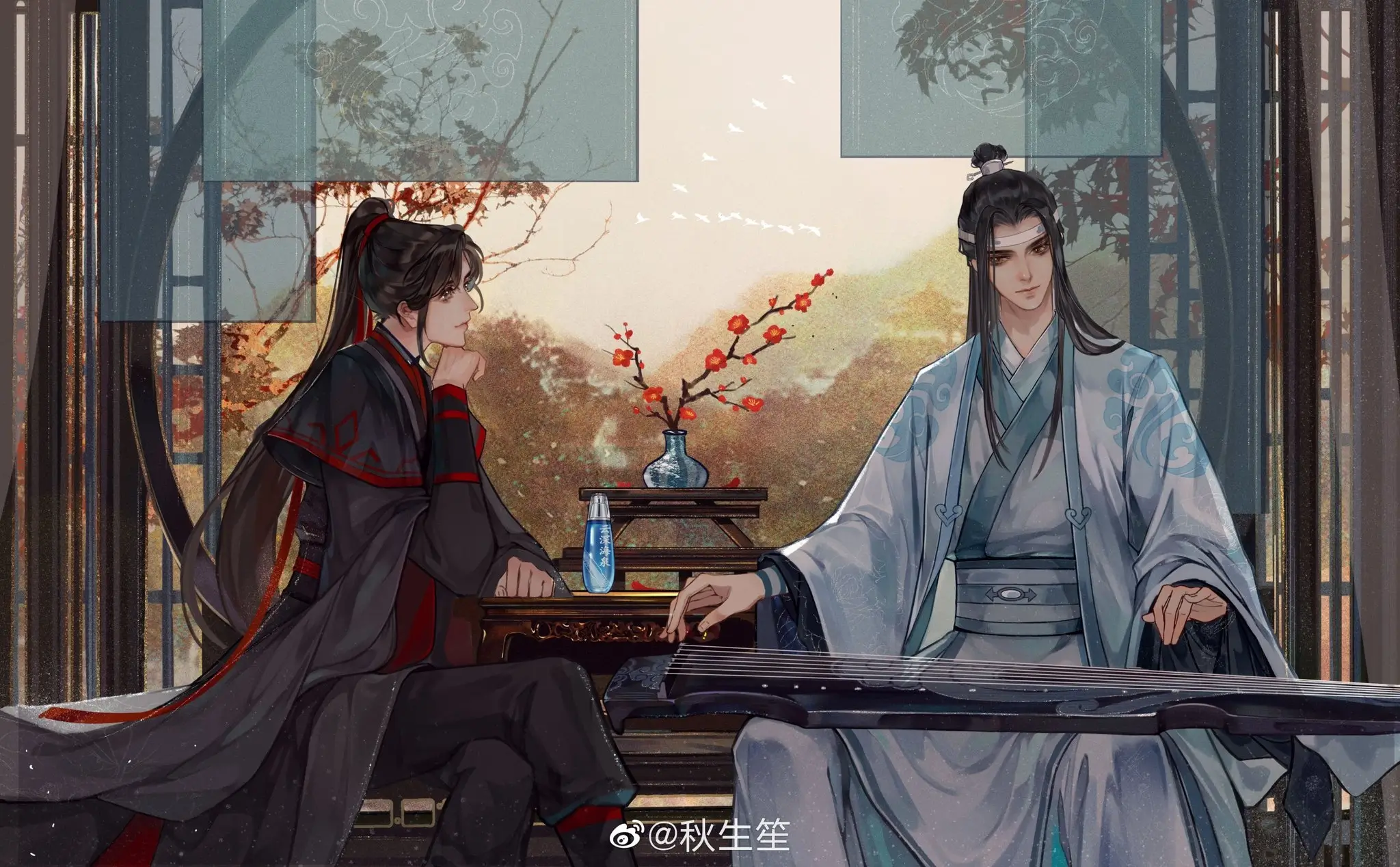“Mo Dao Zu Shi” (MDZS), also known internationally as Grandmaster of Demonic Cultivation, is one of the most celebrated Chinese donghua (animated series) in recent years. Based on the novel by Mo Xiang Tong Xiu, it has captivated millions with its intricate storytelling, dynamic characters, and stunning animation. Yet, for many new viewers, one question often arises: Is Mo Dao Zu Shi a BL (Boys’ Love) series?
In this article, we’ll explore what BL means, the novel’s origins, the adaptations, and the subtle ways relationships are portrayed—particularly within the constraints of Chinese media regulations.
Understanding BL (Boys’ Love) and Danmei
Before determining whether MDZS fits the BL category, it’s important to clarify the terminology.
- Boys’ Love (BL): A genre originating in Japan, focusing on romantic and/or emotional relationships between male characters. BL works can range from subtle emotional bonds to explicit romance.
- Danmei (耽美): The Chinese counterpart to BL. Literally translating to “indulging in beauty,” danmei primarily targets a female audience and features romanticized relationships between men.
While BL is a broad umbrella term used globally, danmei is rooted in Chinese literary traditions and cultural sensibilities.
The Source Material: Mo Xiang Tong Xiu’s Novel
The original Mo Dao Zu Shi novel is a danmei story. It centers on the relationship between Wei Wuxian and Lan Wangji, two cultivators whose bond evolves from rivalry to deep companionship, eventually culminating in romantic love.
In the novel:
- Their romantic connection is explicitly confirmed.
- The emotional depth of their relationship is integral to the plot.
- Subtle and poetic expressions of love are used instead of direct, modern romantic dialogue.
So, from a literary perspective, Mo Dao Zu Shi is indeed a danmei work—thus falling under the BL umbrella in international terms.
The Donghua Adaptation: Navigating Censorship
When Mo Dao Zu Shi was adapted into a donghua, certain elements from the novel had to be altered or made more ambiguous. This is due to Chinese censorship laws, which prohibit the explicit depiction of same-sex romantic relationships in mainstream media.
As a result:
- The donghua focuses heavily on brotherhood, loyalty, and mutual trust.
- Romantic elements from the novel are transformed into symbolic gestures and meaningful glances.
- Direct romantic confessions or physical intimacy are omitted.
This means that while fans familiar with the novel can still perceive the romantic subtext, casual viewers might interpret the relationship as a deep friendship.
Other Adaptations: Audio Drama, Manhua, and Live-Action
Mo Dao Zu Shi has been adapted into multiple formats, each handling the romantic aspects differently:
- Audio Drama: The Chinese audio drama is more faithful to the novel’s romantic themes, although it still avoids explicit depictions.
- Manhua (Chinese comic): The manhua retains the romantic undertones but presents them in a visually subtle way to meet publishing standards.
- Live-Action (The Untamed): This version completely reframes the relationship as brotherhood, due to stricter live-action censorship rules.
How the Relationship is Portrayed in the Donghua
Even with censorship, the donghua includes numerous scenes that hint at romance through:
- Symbolism: Objects, music, and repeated motifs that connect the two leads.
- Dialogue: Exchanges that carry double meanings.
- Body Language: Close proximity, lingering gazes, and subtle touches.
These techniques allow the adaptation to remain faithful to the emotional tone of the original story while staying within regulatory boundaries.
Fan Reception and Global Interpretation
International audiences—especially those familiar with BL—often interpret Mo Dao Zu Shi as a romantic love story, even in its censored form. Online fan discussions, fan art, and analyses highlight the coded romantic moments between Wei Wuxian and Lan Wangji.
In China, however, official discussions focus on themes like justice, morality, and the bond between cultivators, as public promotion of same-sex romance is restricted.
Cultural Context: Why Explicit BL Is Rare in Chinese Animation
Chinese media regulation is a key factor in how stories like Mo Dao Zu Shi are adapted:
- Same-sex romance cannot be depicted explicitly.
- Censors often require reframing such relationships as friendship or brotherhood.
- Symbolism and metaphor become essential tools for storytellers.
Understanding this cultural and legal backdrop helps international viewers appreciate the nuances in how the donghua conveys the central relationship.
Conclusion: Is Mo Dao Zu Shi BL?
From a source material perspective, yes—Mo Dao Zu Shi is a danmei (BL) story. The novel makes the romantic relationship between Wei Wuxian and Lan Wangji explicit, placing it at the heart of the narrative.
From an adaptation perspective, particularly in the donghua, the romance is portrayed subtly due to censorship. While it can be interpreted as BL by viewers aware of the novel, those unfamiliar with the original might see it as a profound friendship.
Ultimately, whether you label Mo Dao Zu Shi as BL in its animated form depends on your perspective and familiarity with danmei storytelling. But one thing is certain: its emotional depth, layered characters, and intricate plot make it a masterpiece—regardless of genre.
Quick Summary:
- Novel: Explicit danmei (BL).
- Donghua: Subtle romantic subtext, reframed as deep friendship.
- Reason: Chinese censorship regulations.
- Audience perception: International fans often interpret it as BL; domestic audiences focus on brotherhood and moral themes.
